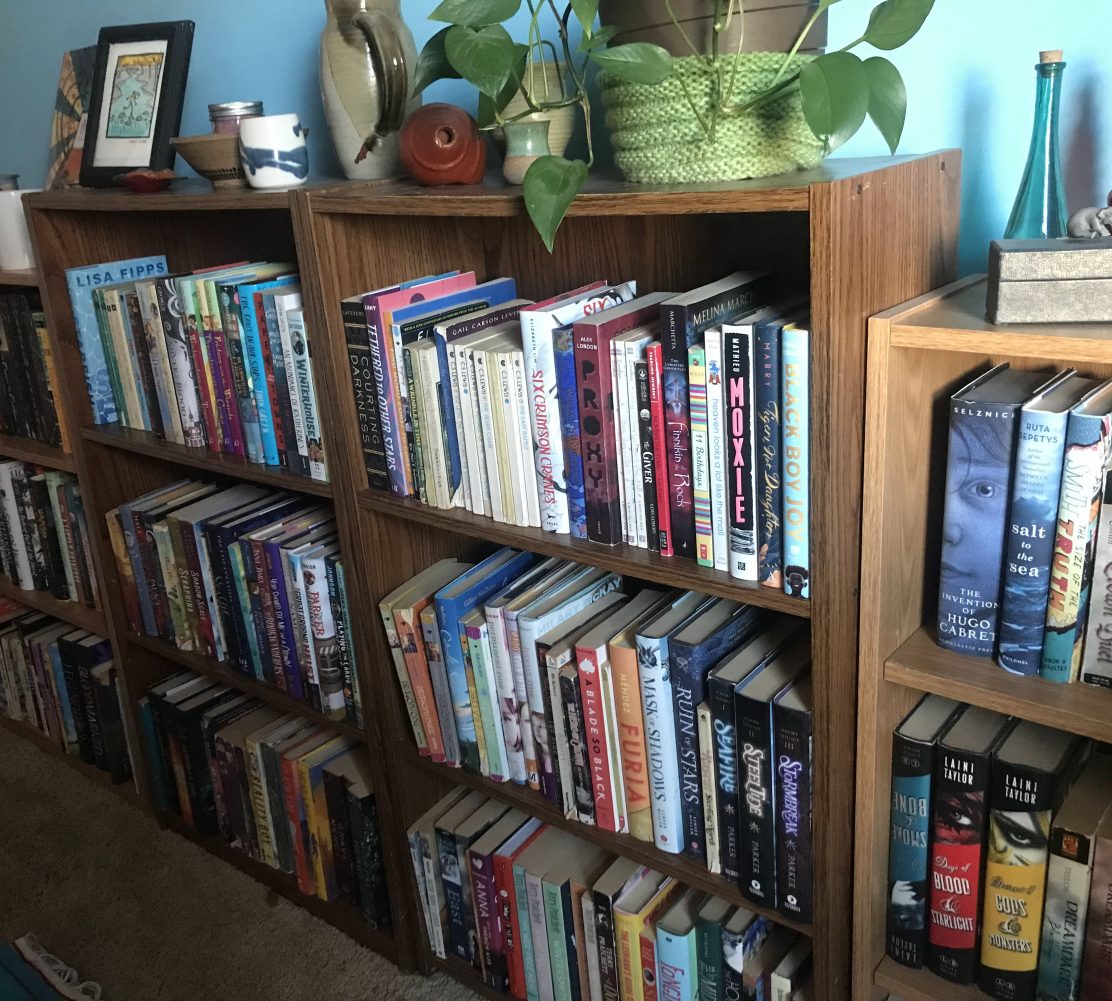 by Jacqueline Kelly
by Jacqueline Kelly
ages: 10+
First sentence: “By 1899, we had learned to tame the darkness but not the Texas heat.”
Support your local independent bookstore: buy it there!
Calpurnia Virginia Tate (Callie Vee for short) is the only daughter of seven children, positioned smack dab in the middle of all those boys. It’s not an enviable position, even though she’s her oldest brother, Harry’s, only pet. It’s made even less enviable because Calpurnia is not a huge fan of anything domestic: sewing, tatting, knitting, cooking… no, she’d much rather be outside.
Then, the summer of 1899, she and her grandfather (who has been living with them all the time) discover each other. Her grandfather is a naturalist of sorts — a founding member of the National Geographic Society and all — and Callie discovers that studying the world around her is what she really wants to do. She spends as much time as possible with her grandfather — in between piano recitals, forced sewing, school, and managing her brothers’ crushes for her best friend — living for and thriving off of the time spent studying and observing.
Of course, since this is 1899 and Texas, Callie couldn’t be allowed (allowed!) to proceed this way: good, proper, well-off girls just didn’t tromp through the underbrush looking at bugs. For me, this was the heart of the novel, this pull for Callie to do what she wanted and not what everyone expected of her:
I clomped through the kitchen on the way to washing up and said to Viola, “How come I have to learn how to sew and cook? Why? Can you tell me that? Can you?
I’ll admit it was a bad time to ask her — she was beating the last lumps out of the gravy — but she paused long enough to look at me with puzzlement, as if I were speaking ancient Greek. “What kind of question is that?” she said, and went back to whisking the gravy in the fragrant, smoking pan.
My Lord, what a dismal response. Was the answer such an ingrained, obvious part of the way we lived that no one stopped to ponder the question itself? If no one around me even understood the question, then it couldn’t be answered. And if it couldn’t be answered, I was doomed to the distaff life of only womanly things. I was depressed right into the ground.
The other things about the novel are true: Callie’s mom is a bit much (though I think I understood where she was coming from), and her father is little more than a cardboard cut-out. But, I adored the brothers — especially J.B., Travis and Harry — and her grandfather more than made up for her parents in character. Callie is, yes, spunky, but she’s more than that: she’s curious and observant, and — the thing that really got to me — doesn’t really want everyone to grow up and change. A girl after my own heart.
I also liked the way Kelly evoked a particular feel; the sense of anticipation, of change that must have accompanied the time period was quite palpable in the book. It’s a historical novel that actually felt like it. Callie was modern, sure, but she was struggling with her modernity against all the traditional values that were around her, and that dichotomy was intriguing.
A good story.

This is one I want to read. Thanks for the review, sounds good.
http://wordlily.wordpress.com
LikeLike
I'm seriously dying to read this book! I've heard such goof things about it, and it sounds like something I'd love.
LikeLike
I love the first sentence. It's so true.
LikeLike
I LOVED JB (of course, it doesn't hurt that my 5 year old has the same nickname). 🙂
LikeLike
I thought the parents were “cardboard” BECAUSE they were the parent. The father would not have been very involved with his daughter in that day and age. Mother had her “position” to uphold and wanted her daughter to make a good match in the end–the most worthy goal of the day. I think they were cardboard because Callie was listening to her own goals and dreams, so learning to tune them out! Nice blog–glad I found it.
LikeLike